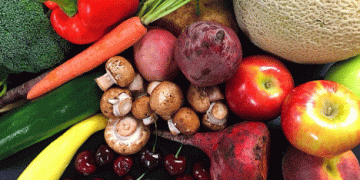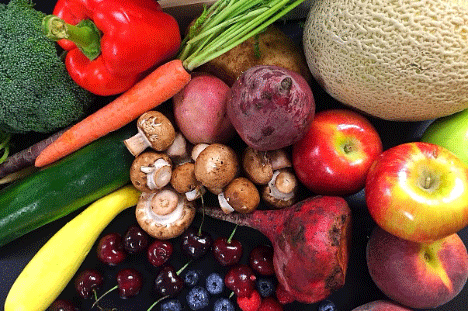Spain’s agricultural sector is closely monitoring recent trends in domestic consumption of fresh fruits and vegetables. According to data from the Ministry of Agriculture, Fisheries, and Food (MAPA), cited by FEPEX (Spanish Federation of Associations of Exporting Producers of Fruits, Vegetables, Flowers, and Live Plants), the first half of 2024 witnessed a 0.5% decline in fresh produce consumption compared to the same period in 2023. The total volume of fruits and vegetables consumed stood at 3.367 billion kilograms, reflecting a shift in consumer habits that has implications for producers and retailers alike.
Fruit consumption, in particular, saw the most significant decrease, dropping by 1.9% to 1.779 billion kilograms. Popular fruits like oranges, bananas, and apples, which are staples in many households, experienced notable declines. Oranges saw a 12% reduction in consumption, while bananas and apples dropped by 2.3% and 2%, respectively. In contrast, strawberries bucked the trend, with consumption rising by 10%, totaling 101 million kilograms during the period. This shift suggests that while traditional fruits are seeing a decline, there is growing interest in seasonal and more specialized fruits.
On the other hand, the demand for fresh vegetables has shown positive growth, reversing the downward trend observed in recent years. Vegetable consumption increased by 2.1%, reaching 1.171 billion kilograms. This growth was led by tomatoes, which saw a 9.5% increase to 265 million kilograms, and peppers, with a 10% rise to 96 million kilograms. These figures indicate a potential opportunity for vegetable producers to capitalize on the growing consumer preference for fresh vegetables.
Interestingly, despite the decline in consumption, expenditure on fresh produce grew by 4% during the first half of 2024, totaling €7.199 billion. Of this, €3.934 billion was spent on fruit, a 5% increase from the same period in 2023, while vegetable expenditure rose by 2.3% to €2.760 billion. Potato expenditure also saw a significant increase of 6.2%, amounting to €506 million, despite a 1.6% decrease in consumption volume to 417 million kilograms. This divergence between consumption volume and expenditure highlights the impact of rising prices in the fresh produce sector, driven by inflation and higher production costs.
The decrease in fruit consumption and the modest growth in vegetable intake could be linked to various factors, including changing dietary preferences, economic pressures on households, and shifts in seasonal availability. FEPEX has emphasized the need for continued efforts to promote fruit and vegetable consumption in Spain, particularly among younger consumers who are increasingly seeking convenience and variety in their diets.































